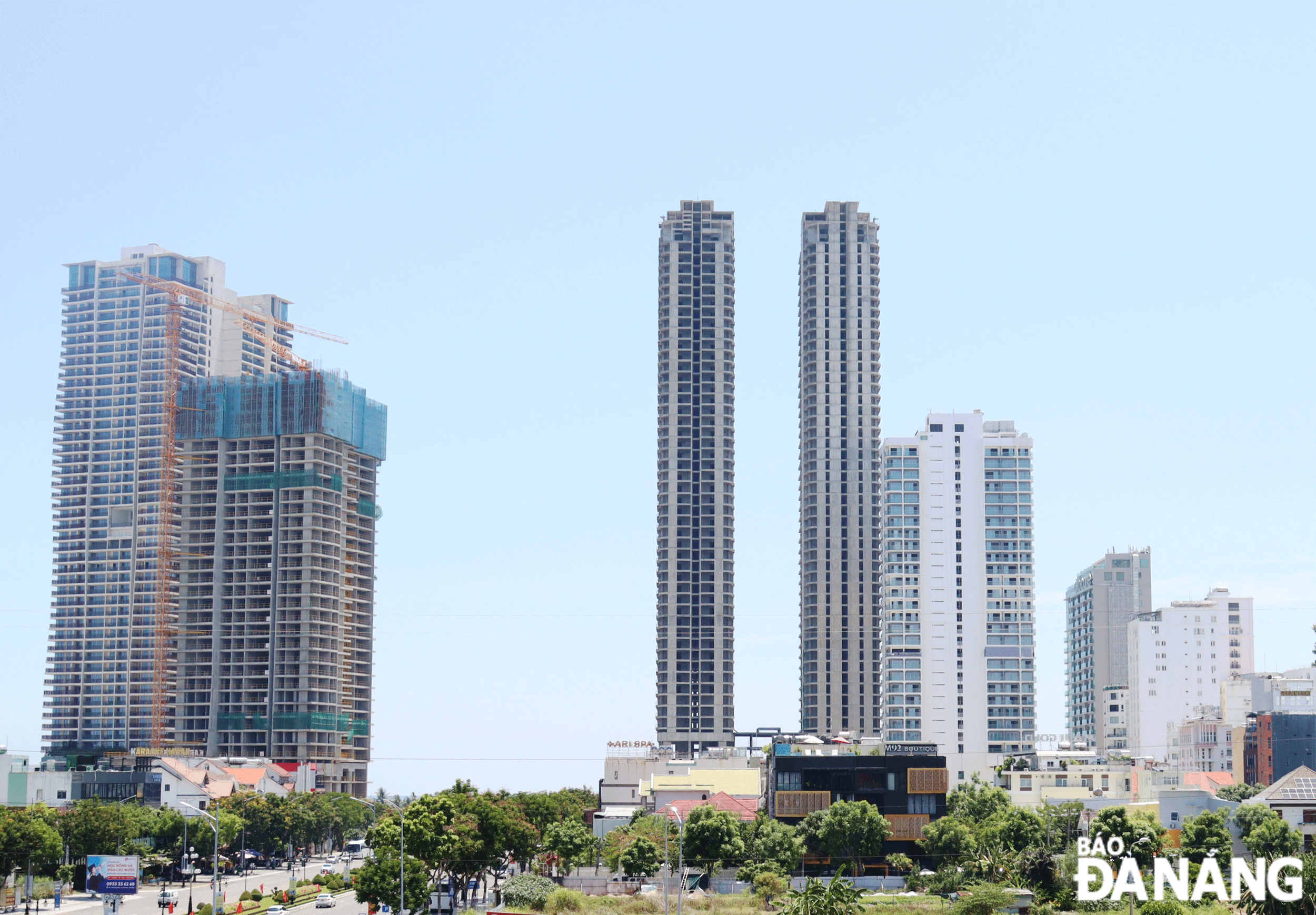Da Nang boosts digital transformation in construction industry
Da Nang is aiming for a roadmap to promote the application of Building Information Modeling (BIM) in construction activities, a digital transformation solution to improve productivity, quality and efficiency of investment activities in construction projects of level 2 or higher starting from 2025.
 |
| Construction projects are increasingly large-scale, diverse, and complex, requiring the application of digital technology in management, appraisal, and construction licensing. Photo: HOANG HIEP |
Additionally, the municipal Department of Construction is proposing solutions to apply digital technology in order to enhance the efficiency of appraisal and construction licensing in the electronic environment, and is fostering digital transformation in the construction industry.
Construction projects are becoming increasingly diverse and complex in terms of design, structure, materials and equipment. They are also applying new and advanced technologies as well as requiring higher accuracy, efficiency, aesthetics and safety in natural disasters.
The application of digital technologies, such as building information modeling (BIM), artificial intelligence (AI), digital map (also known as a geographic information system GIS), and remote sensing (RS), in construction investment management, appraisal and construction licensing will play a key role in solving the abovementioned challenges and improving the effectiveness of State management in the construction sector.
Deputy Director of the municipal Department of Construction Tran Van Hoang said that digital transformation is a trend in the construction industry, in which the application of BIM is very necessary for construction investment projects in a bid to improve management efficiency, reduce costs and increase accuracy in the design, construction and operation of works.
According to the Prime Minister’s Decision No. 258/QD-TTg dated March 17, 2023, since 2023, BIM application has been mandatory for level 1 and special level works of new construction projects using public investment capital, foreign state investment capital and investment capital under the public-private partnership (PPP). Starting from 2025, BIM application will be mandatory for the preparatory works of construction investment projects at level 2 and over.
According to the municipal Department of Construction, the local authorities have agreed to select four level 2 construction projects funded by public investment capital to pilot the BIM application in 2024.
Accordingly, the Ngu Hanh Son District-based Medical Centre; the current storage area of the Administration Centre in Hoa Tho Tay Ward, Cam Le District; and the intersection cluster of Le Thanh Nghi, Cach Mang Thang Tam and Thang Long streets and the road leading to the Hoa Xuan Bridge in Hai Chau and Cam Le districts; have applied BIM from the step of preparing the feasibility study reports. Meanwhile, the second phase of the Le Kim Lang Primary School project in Hoa Chau Commune, Hoa Vang District has applied BIM from the step of preparing the construction design.
Based on the results of applying BIM to the aforementioned projects, the city has assessed and considered the widespread application of the model to projects at level 2 and above starting from 2025 as requested by the Prime Minister.
In recent times, the Department of Construction has encouraged businesses and units to apply BIM in construction investment activities. However, the application of new technologies such as BIM, GIS and AI in construction appraisal and licensing is still limited and encountered an array of difficulties and challenges.
In order to improve the efficiency of handling documents and work entirely in the electronic environment, especially construction appraisal and licensing, the municipal Department of Construction proposed that the city build a comprehensive architectural model of the technology application system with 3 phases.
Specifically, the first phase will focus on building a digital database and managing the exploitation of appraisal data, construction licensing and project management on the GIS platform.
The second phase will be to manage the entire appraisal and licensing process on the digital map platform integrated with the one-stop system and other systems. The third phase will concentrate on applying BIM combined with GIS, AI and RS technologies in the management, appraisal and construction licensing work.
Currently, the Department of Construction is deploying a project to build a database system on housing and real estate market on a digital map platform (phase 1). This system integrates digitised records of apartments, social housing and real estate projects.
To promote comprehensive digital transformation in the construction industry, the Department of Construction has recently worked with VNPT Information Technology Company to implement digital transformation solutions specifically for the industry, with the focus on 9 functions and tasks: public service; internal administration; economics and construction materials; construction investment activities; construction quality; technical infrastructure and urban development; housing, office and real estate market; construction planning, architecture; and environmental protection.
Moreover, there are a number of solutions applying AI, GIS, RS and BIM technologies to planning and architecture management; and 3D digital mapping technology.
Reporting by HOANG HIEP - Translating by M.DUNG, P.TRA